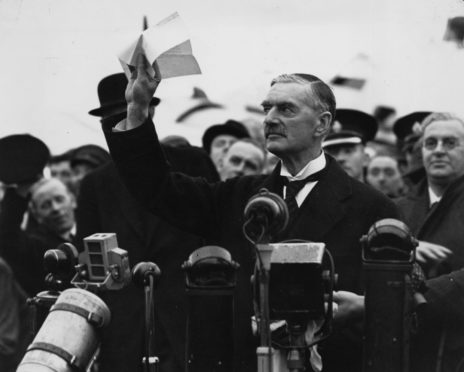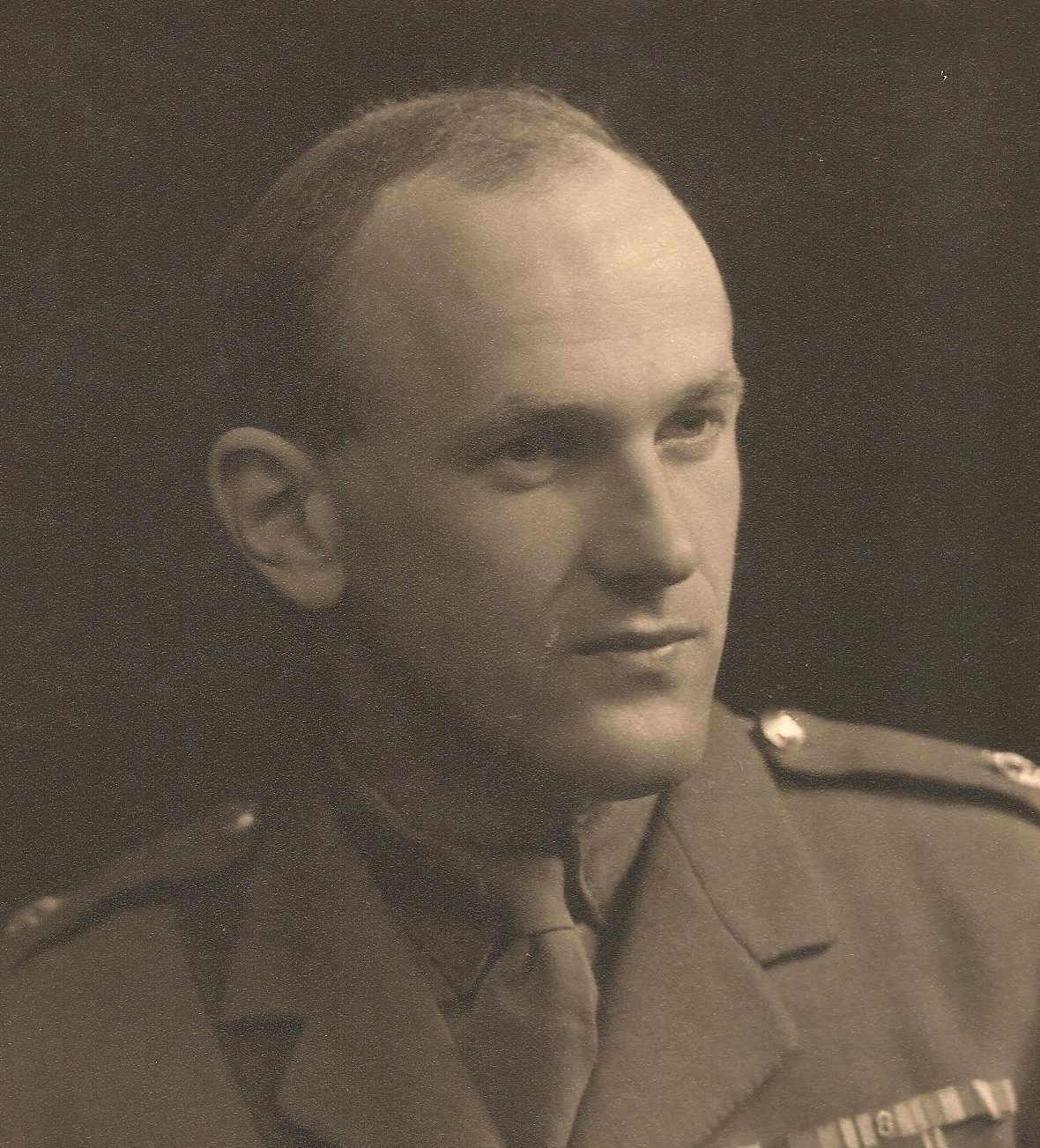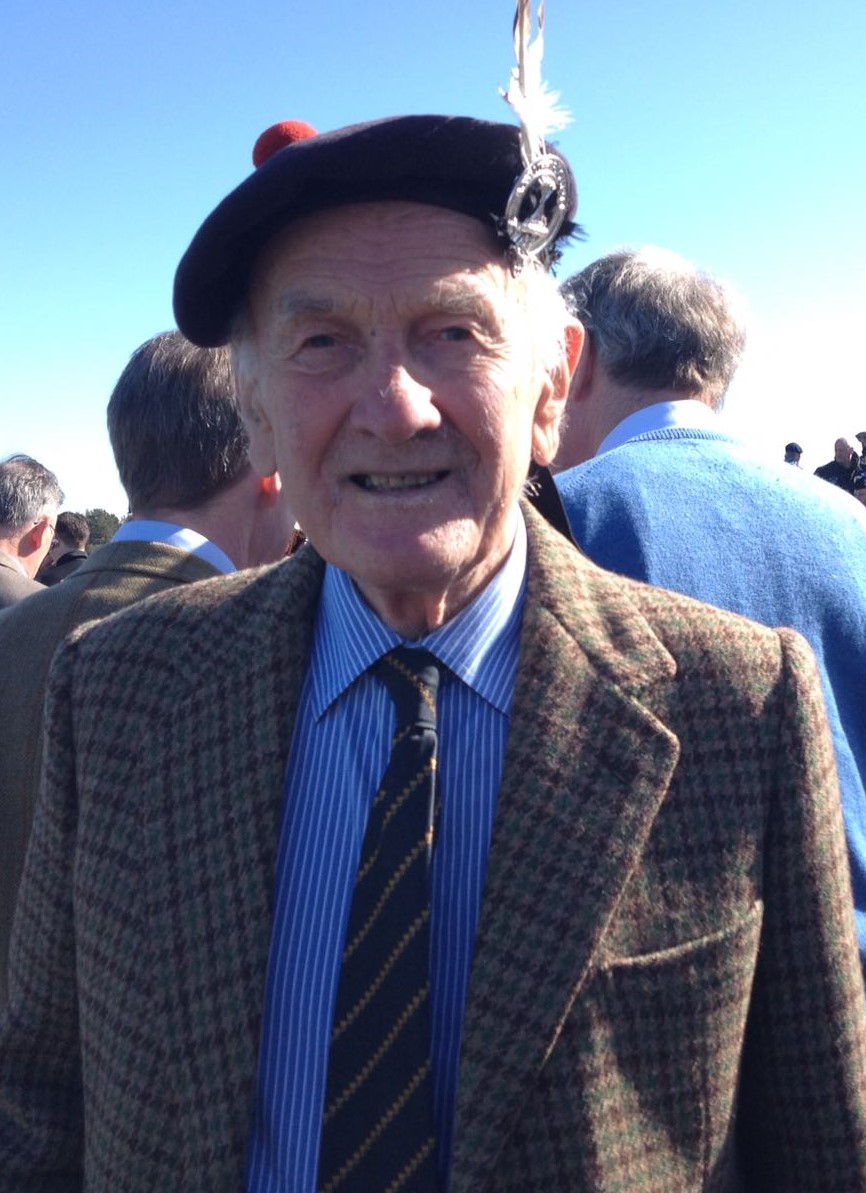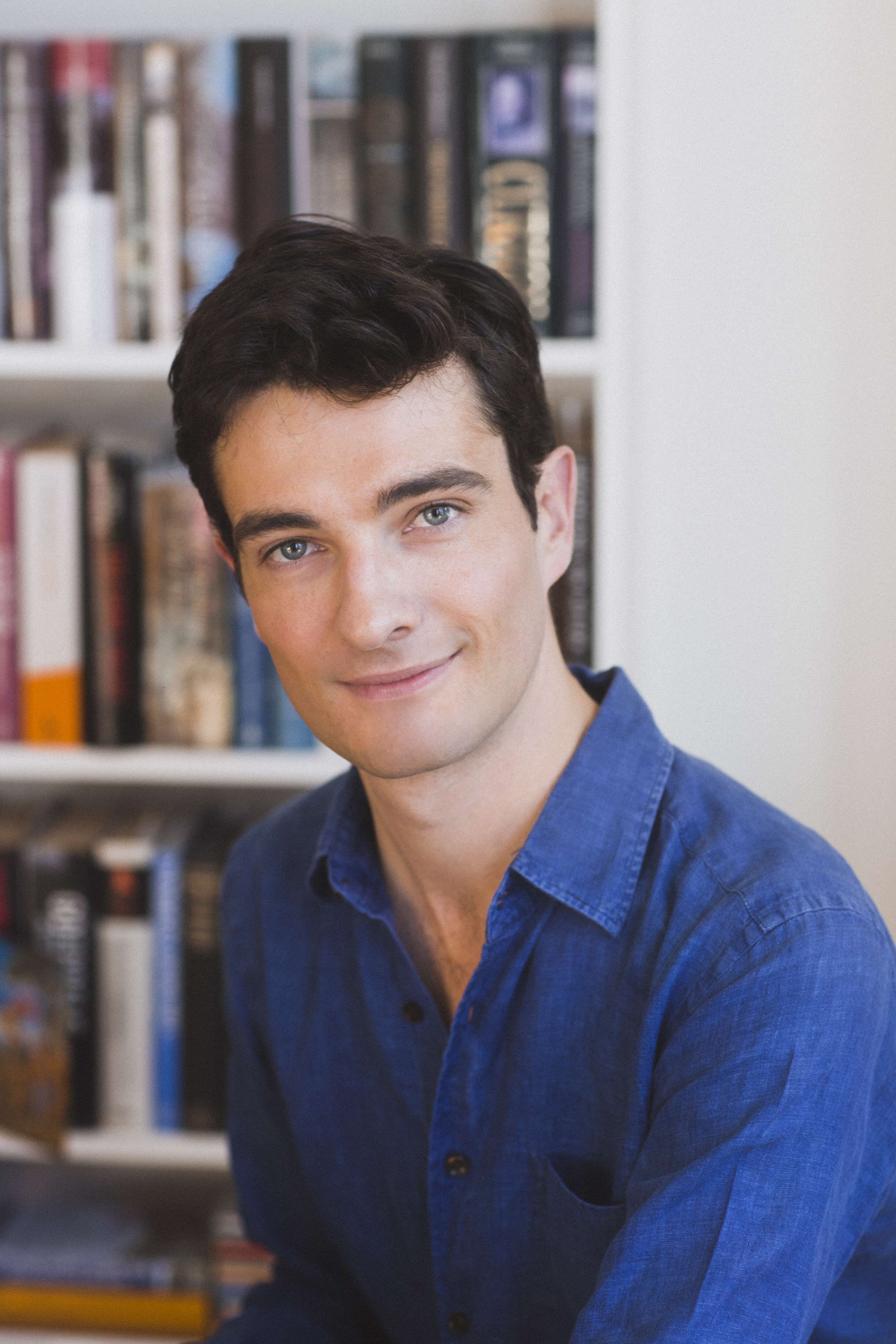
It was one of the defining moments of the 20th Century, Prime Minister Neville Chamberlain’s attempts at appeasement.
But less than a year after his “Peace for our time” declaration following the now infamous Munich Agreement in 1938, Chamberlain had to take the country into the Second World War.
Former Channel 4 News political journalist Tim Bouverie critically examines Chamberlain’s appeasement policy in acclaimed book, Appeasing Hitler: Chamberlain, Churchill And The Road To War.
He will be sharing a stage at the Boswell Book Festival next Saturday with 98-year-old war hero lieutenant-colonel Charles Cameron, who supported Chamberlain’s approach.
Of those who lived through the times, none could ever forget where they were when Neville Chamberlain announced Britain was at war with Germany.
Charles Cameron, already in the military, was no different.
“I gathered round the radio with my family at 11am,” recalls Charles.
“It was just a confirmation, really. Once Germany entered Poland we knew we were in for war. I was about to turn 19, and I didn’t think too much, I just took it as it came.
“My biggest memory is of the Friday before that Sunday. I went out to shoot grouse.
“I remember thinking that it would be the last time I’d do that for a very long time. And it was, of course.
“I knew that when I got home I’d find my mobilisation papers.”
Being an eyewitness to history wasn’t new to Charles. Brought up in Achnacarry Castle, ancestral seat of the Camerons of Lochiel, he was a page at the Coronation of King George VI at Westminster Abbey in May 1937.
Coming from a military family, Charles had joined the Territorial Army in February 1939.
That was a matter of months after Chamberlain’s famous “Peace for our time” proclamation.
Charles was a supporter of the policy.
“Many people had fought in the Great War or knew or had lost someone, and were desperate to avoid a repetition,” he said.
“The Depression of the late ’20s and ’30s meant people had seen their unemployment benefits reduced and they didn’t want to see that money spent on battleships.
“We were frightened of being bombed or gassed. And the fourth thing was the Labour’s Party’s stance on disarmament. So we really didn’t want war.”
While Chamberlain’s appeasement has been harshly judged by history, Charles says it had a crucial outcome – it bought Britain time to make ready for war.
“I remember the sense of relief,” said Charles. “But it was a mistake coming off the plane and waving that piece of paper. I think he did that in a fit of exuberance.The country largely turned against Chamberlain but I almost felt sorry for him as it did allow breathing space for the country to prepare. We weren’t ready in 1938.”
Charles was stationed in the UK with the Queen’s Own Cameron Highlanders until he went abroad in 1942, his first taste of battle coming at El Alamein.
“I remember the noise from all the shells more than anything,” said Charles. “There was a tremendous bombardment. I wasn’t frightened because I had so much to do controlling the advance.
“There had to be five yards between each man and you had to advance at a certain pace. Any faster you came under your own shells and any slower and you would be under what they called a creeping barrage.”
Charles was wounded by a shell, the first of three times he’d be wounded during the war, the other two by mines in Tunisia and Italy.
He went on to be involved in the liberation of San Marino for which he was awarded the Military Cross, ending the war as a major and subsequently became a lieutenant-colonel in the TA.
Looking back, Charles has no time for modern-day brickbats.
“People don’t have the right to criticise what happened in the ’30s,” adds Charles.
“I certainly don’t think we should go to war now, but people can’t criticise appeasement back then when we are doing the same thing ourselves today.
“I think we’re in the middle of appeasement with Russia. Germany invaded Czechoslovakia and we did nothing – but Russia invaded Ukraine and nothing was done about that.
“We’ll look back in 50 years and see appeasement.”
Author: PM was not weak but vanity deluded him
Although Chamberlain’s appeasement failed and many believe a tougher stance may have deterred Hitler, Chamberlain had backing from much of the British aristocracy.
As part of the research for his book, Appeasing Hitler: Chamberlain, Churchill And The Road To War, Tim Bouverie had access to the papers of the Duke of Buchleuch.
“He visited Germany every year between 1933 and 1939 and conversed with leading members of the Nazi regime,” said Tim. “Buccleuch had two simplistic ideas. One was that Bolshevism was a far greater danger than Fascism and so the Fascists in Germany and Italy were a good thing and should be supported.
“And secondly that a war could be staved off simply by showing these people that we wanted to be friends with them.”
The book pinpoints Chamberlain’s ego and his belief that only he could save the country from the spectre of war as a major factor in his spectacular downfall.
But while he may have bent over backwards to strike peace, he was far from an ineffectual leader, according to the book. “There is an enormous misconception that because he negotiated with Hitler he was somehow weak,” said Tim.
“He was not a weak man. He was one of the most ruthless and determined prime ministers of the 20th Century.
“However, he allowed his vanity to play a large part and had the fatal delusion that he had a hold on the German dictator that no one else had.”

Enjoy the convenience of having The Sunday Post delivered as a digital ePaper straight to your smartphone, tablet or computer.
Subscribe for only £5.49 a month and enjoy all the benefits of the printed paper as a digital replica.
Subscribe

